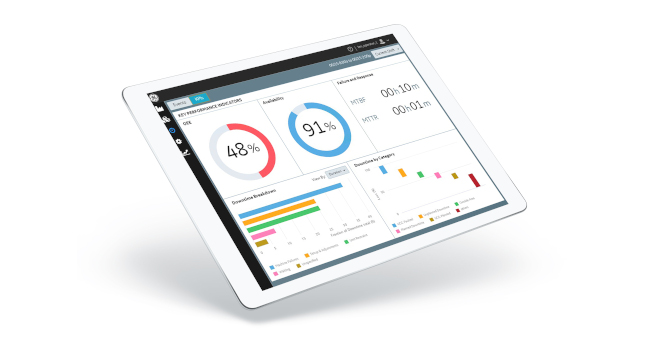Integrate new technologies, MES software
Integrating Industry 4.0 and manufacturing execution system (MES) software can increase revenues, create faster turnarounds, improve quality for manufacturers.
Learning Objectives
- Understand the importance of effective manufacturing execution system (MES) software for manufacturers.
- Learn how Industry 4.0 efforts have facilitated needed changes for manufacturers and the value of a digital thread.
- Explore three key benefits of integrating Industry 4.0 with MES.
To stay ahead of the competition, manufacturers have to take drastic steps towards maximizing productivity with a strong focus on quality, supply chain, and operating cost reductions. Manufacturers face challenges in various areas, including production planning, scheduling, tracking production output, workforce-machine utilization, material consumption, and ensuring delivery of products on time. Though industrial automation has helped make mass production faster while minimizing errors, it is insufficient to effectively address many evolving concerns.
There is an urgent need to adopt the latest technologies, integrate and digitalize the entire value chain. Manufacturing execution system (MES) software provides a basis for operations to schedule, plan, and track each step during production. From order receiving and production planning to delivering products, smart MES streamlines the processes and efficiently tracks related activities.
Importance of effective MES for manufacturers
As the manufacturing industry becomes more complex, integrating and connecting the operations gets extremely difficult, hindering productivity. With the rapid evolution in production processes and approaches, more types of equipment need to communicate with machines and, in turn, must integrate with an MES system to gather quick real-time data. This is why cloud-based MES systems have become a must-have for manufacturers to run operations better.
With the help of cloud MES solutions, data can be extracted and accessed at any time, even from remote locations. It connects multiple departments and helps companies take advantage of MES, enterprise resource planning (ERP), and supply chain system data to enable focused decision-making.
Industry 4.0 – The harbinger of change
The fourth industrial revolution – Industry 4.0 – has brought together people, machines and artificial intelligence (AI) in the manufacturing value chain, increasing capabilities and expectations and enhancing revenue growth.
Industry 4.0 integrates various digital technologies, including the Industrial Internet of Things (IIoT), to create a digitalized manufacturing ecosystem. IIoT, for instance, permits decision making based on interpreting real-time data rather than only relying on data derived earlier.
MES forms the backbone of this ecosystem, helping aggregate disparate data sources into cohesive information chunks that can help manufacturers enhance decision-making in critical areas, including product line changes, supply chain fine-tuning, etc. MES provides vital data and a mechanism for learning one life cycle and feeding it back to design and quality control for continuous improvement and growth.
MES and IIoT integrate with several other business systems to ensure smooth communication. These would include the software for AI, machine learning (ML) and analytics, production technologies (sensors, assembly line systems), enterprise operational technologies (supply chain, ERP, product lifecycle management [PLM]) and infrastructure technologies (IIoT and cloud). MES can simplify the development of ML and AI applications. Inaccurate data is cleaned up and sent from MES, reducing the efforts to the AI apps. Also, MES is an excellent source to assist AI and machine learning applications in validating answers.
The value of a digital thread
A digital thread is the use of digital tools and representations for design, evaluation and life cycle management. When implemented, it provides an intra- and inter-enterprise communication framework. As an essential aspect of Industry 4.0, the digital thread offers a single source of end-to-end insights.
Three key benefits of integrating Industry 4.0 with MES
Increased revenues, faster turnarounds and improved quality are three ways integrated Industry 4.0 and MES can help manufacturers. Here’s why.
- Increased revenues derive from decreased cycle times, faster time-to-market, reliable on-time delivery, higher production capacity and real-time business insights.
- Quicker turnarounds result as manufacturers leverage real-time data to identify and address production or supply chain issues effectively.
- Improved quality assurance and 100% audit-ready compliance happen as closed-loop integration, real-time data, machine connectivity and process automation work together.
Many manufacturers have already adopted this brilliant amalgamation of technologies to maximize business performance and drive competitive differentiation. It is time for the global manufacturing sector to embrace it with gusto.
Sacheen Patil, vice president and global head – IoT and embedded practice center of excellence (CoE), Yash Technologies. Edited by Mark T. Hoske, content manager, Control Engineering, CFE Media and Technologies, mhoske@cfemedia.com.
KEYWORDS: MES, Industry 4.0, system integration
LEARNING OBJECTIVES
CONSIDER THIS
Would easier and more information integration help your manufacturing efforts?
Do you have experience and expertise with the topics mentioned in this content? You should consider contributing to our CFE Media editorial team and getting the recognition you and your company deserve. Click here to start this process.



